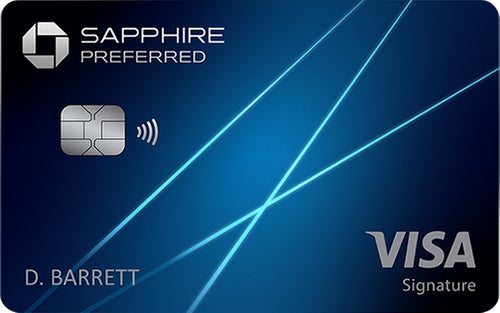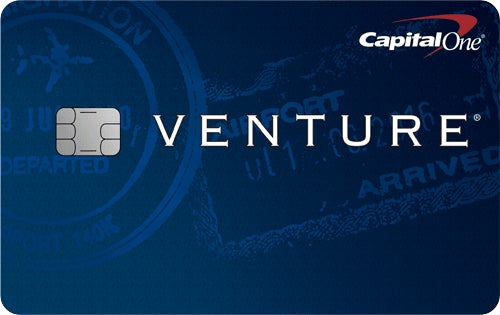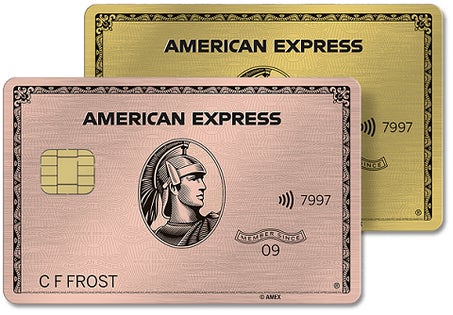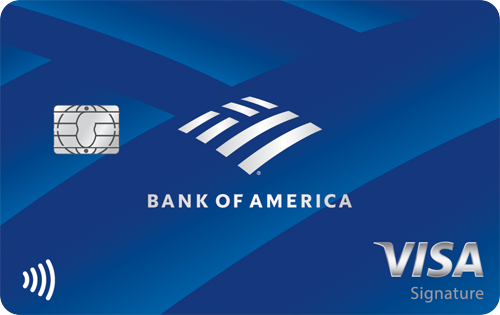To help you get started, we’ve compiled the following list of the best travel credit cards for beginners. You’ll find a range of options – including cards with no annual fees – so you can choose one that aligns with your spending habits and travel preferences. If you’d rather book directly with a certain airline or hotel, the Chase Sapphire Preferred lets you transfer your points to several loyalty programs at a 1:1 rate. Transfer partners include Hyatt, JetBlue, Marriott, Southwest, and United. The annual fee on this card is $95, which may seem steep if you’re new to travel rewards. However, it includes an impressive number of perks, including bonus points on your cardmember anniversary, a $50 annual hotel credit, trip cancelation/interruption insurance, rental car coverage, and more. Plus, the Chase Sapphire Preferred card currently offers an outstanding sign-up bonus of 60,000 points if you spend $4,000 in the first three months after opening your card. Pros
Easy to redeem pointsBonus spending categories (travel, dining, online groceries, and streaming services)25% bonus for booking through Chase Ultimate Rewards portalTransfer points to 13 hotel and airline partnersTravel protection for trip cancellations/delays, rental cars, and lost luggageNo foreign transaction fees
Cons
Annual fee may not appeal to travel beginnersTransfer partners don’t include all major airlinesMust book through the Chase portal to get the most value
To make redemption even easier, Capital One also allows you to cash in your miles after you’ve booked travel. All you need to do is purchase your flight, hotel, vacation rental, or rental car, then log into your Capital One account and apply your accrued miles to your travel purchase. They should appear as a credit on your bill within two to three business days. For a $95 annual fee, it’s a great option if you’re busy and don’t have time to transfer miles or search for travel rewards on the Capital One portal. As far as spending goes, you’ll earn 2x miles per dollar spent on every purchase, as well as 5x per dollar spent on rental cars and hotels reserved through Capital One’s portal. Right now, the company is offering a bonus of 75,000 miles for spending $4,000 in the three months after opening the card. Pros
Multiple redemption optionsGenerous sign-up bonusMiles can be transferred to 17 travel partnersAll purchases earn 2x miles per dollarNo foreign transaction fees$100 credit toward Global Entry or PreCheckTwo Capital One lounge passes per year
Cons
Can’t transfer miles to major US airlines or hotel chainsNeed to watch your statement to make sure miles credit is applied correctly
Of course, the American Express Gold Card also offers travel-specific benefits. You’ll accrue 3x points on flights (when booked directly with an airline or through the AmEx travel portal) and get a $100 annual credit on the Hotel Collection properties. All of your points are redeemable through the company’s Membership Rewards program, where you can purchase flights, hotels, rental cars, and more. Alternatively, you can transfer points to more than 20 travel partners, including major players like Delta, Hilton, Marriott, and Radisson. Compared to the other credit cards on our list, the $250 annual fee on the American Express Gold Card may seem high. However, if you spend a lot on food, it could make sense for you. If you enroll now, you can earn an extra 60,000 bonus points for spending $4,000 in the first six months after opening the card. Pros
4x points on restaurants, takeout and delivery in the U.S., and U.S. supermarkets (up to $25,000 per year, then 1x); 3x points on flightsSolid welcome bonusNo foreign transaction feesAnnual Uber Cash and dining creditsIncludes car rental and lost baggage insuranceChoose your card color (Gold or Rose Gold)
Cons
Higher annual feeMany US airlines missing from transfer partnersSome retailers don’t accept American Express
Not only is it simple to earn points, but it’s also easy to redeem them. When you’re ready, just book travel with your Bank of America card. After the charge posts to your statement, you can trade in your points for a statement credit. If you’re traveling overseas, there are no foreign transaction fees, which is great to see on a no-annual-fee card. If you belong to the America Preferred Rewards program, you can earn up to 75% more points per purchase. Plus, new cardholders can receive a 25,000-point bonus for spending $1,000 or more in the first three months after signing up. Pros
No annual fee1.5x points on all purchasesEasy to redeem points for travelNo foreign transaction feesCompetitive sign-up bonusExtra perks for BofA Preferred Rewards members
Cons
No bonus spending categoriesCan’t transfer points to travel partnersNo trip or rental car insurance
Fees: The annual fees on travel credit cards range from $0 to $600+. Our picks are on the lower end of this spectrum to accommodate beginners who are just starting their journey with travel rewards.Points-per-dollar earnings: This is one of the most important considerations when it comes to travel cards. When redemption rates are higher (3x to 5x points per dollar), you’ll get more value from your everyday purchases – particularly if you spend a lot in certain categories. For this list, we chose cards with a variety of earning rates and bonus categories.Sign-up bonuses: Also known as welcome offers, sign-up bonuses reward you for spending a certain amount of money after opening a card. In many cases, these bonuses can cover the costs of roundtrip flights or multiple nights at a hotel. Our travel card picks all have competitive welcome offers.Extra features: From airport lounge access to hotel credit to concierge services, each travel card has its own set of attractive bonus features. The cards on this list include a mix of features, so you can choose the ones that appeal most to you.
For instance, if you’re just testing the waters with travel rewards or don’t plan to travel often, you might consider a card with a $0 annual fee (like the Chase Freedom Unlimited or the Bank of America Travel Rewards). On the other hand, if you’re planning a few big trips, you might be better off choosing a card with a generous welcome offer or the ability to transfer points to travel partners. In that case, cards like the Chase Sapphire Preferred or the American Express Gold Card are wonderful options.
Capital One Venture X Rewards Credit Card: This card offers 10x miles on rental cars and hotels and 5x miles on flights (as long as you book through the Capital One portal). It comes with a $395 annual fee.Chase Ink Business Preferred® Credit Card: If you’re a business owner, you can use this card to earn 3x points on travel and several business categories. There’s a $95 annual fee, and the card currently has a 100,000-point welcome bonus.Delta SkyMiles® Platinum American Express Card: We didn’t include any hotel or airline-specific cards on our list, but if you’re looking for a good option, this Delta card is worth considering. As a cardholder, you’ll earn 3x miles on Delta and hotel purchases and 2x miles at U.S. supermarkets and restaurants worldwide. Its fee is $250 per year (see rates and fees).







